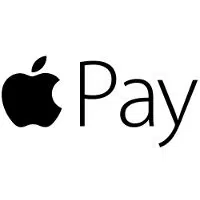Australian banks are using fees on Apple Pay transactions as a “trojan horse” to discourage the use of its mobile payments service and to condition consumers to accept transaction fees with the “longer term view to setting a precedent for charging for mobile payments on other digital wallets,” Apple claims in its latest submission to the Australian Competition and Consumer Commission (ACCC).
 The submission is the latest round in the battle between Apple and a group of Australian banks comprising Bendigo and Adelaide Bank, Commonwealth Bank of Australia, National Australia Bank and Westpac Bank seeking to “collectively negotiate” with third-party mobile wallet providers over the introduction of mobile payment services in the country.
The submission is the latest round in the battle between Apple and a group of Australian banks comprising Bendigo and Adelaide Bank, Commonwealth Bank of Australia, National Australia Bank and Westpac Bank seeking to “collectively negotiate” with third-party mobile wallet providers over the introduction of mobile payment services in the country.
The wish of Australia’s big four banks to charge consumers for every Apple Pay transaction is a way of “introducing and then proliferating a new revenue stream in the digital payments age,” Apple writes.
“Apple has previously demonstrated the clear incentives for the applicant banks to artificially bias the development of their own proprietary issuer digital wallets and discriminate against the use of Apple Pay by imposing transaction fees on Apple Pay transactions, while not charging fees for alternative payment methods provided by the banks,” Apple says.
“Put simply, the applicant banks have the means, motive and opportunity to disadvantage Apple Pay by pricing Apple Pay transactions above transactions made using their own proprietary issuer digital wallets, to dissuade cardholders from using Apple Pay. Any rational economic player would be expected to take advantage of that opportunity.”
‘Inconsistent argument’
“Apple has been puzzled by the applicant banks’ logically inconsistent argument that they wish to have the ability to charge consumers per transaction fees for using Apple Pay, but are unlikely to be able to do so owing to competition from other issuers like ANZ who do not,” Apple continues.
“Perhaps the explanation might be that this is perceived by the applicant banks as a way of introducing and then proliferating a new revenue stream in the digital payments age.
“It may well be that the applicant banks have taken the view that customers may be more willing to pay fees to use Apple Pay because of the ease and security of using Apple Pay and, on that basis, see an opportunity to introduce and condition the market to transaction fees for the use of Apple Pay, with the longer term view to setting a precedent for charging for mobile payments on other digital wallets in the future, including the banks’ own proprietary wallets.”
Apple also claims that, by continuing to “block or delay” Apple Pay across Australia, the banks are harming smaller card issuers that are limited in their ability to develop their own mobile wallets.
“If the applicant banks are granted authorisation to continue to block or delay the expansion of Apple Pay to greater number of cardholders in Australia, this will have a significant impact on smaller card issuers who already, or could in the future, rely upon Apple Pay as a means of securing a digital presence in competition with the big banks,” Apple says.
‘Limit the choice’
“Apple Pay fosters competition between payment card issuers at the point of sale due to the ease with which customers can switch between cards within the Apple Wallet app. This is not possible within the banks’ own proprietary issuer digital wallets, which limit the choice for the customer to only payment cards issued by that bank.”
“Apple can perceive no benefit to the public of enabling the applicant banks to charge consumers for using Apple Pay,” the company adds. “The only benefit is the private benefit to the applicant banks to enable them to impose such fees as a means of discouraging use by customers of particular presentment methods such as Apple Pay.”
The banks are reported to have responded to Apple’s latest submission, saying it is “incorrect and unsupported”.
“The application has never been about preventing Apple Pay from coming to Australia or reducing competition between wallets,” Bloomberg reported them saying.
“It has always been about providing real choice and real competition for consumers and facilitating innovation and investment in the digital wallet functionality available to Australians.”
Timeline
- 27 July 2016: Bendigo and Adelaide Bank, Commonwealth Bank of Australia, National Australia Bank and Westpac Bank submitted their request for negotiation to the ACCC;
- 10 August 2016: Apple spoke out for the first time about the banks’ submission, saying it was made up of “factual and legal misstatements”;
- 22 August 2016: The ACCC ruled that it would not grant the banks interim authorization to collectively negotiate;
- 30 August 2016: Supermarket giant Coles put its backing behind the banks with its own submission to the ACCC;
- 31 August 2016: Apple insisted that opening up access to the NFC technology within its handsets was not open to negotiation with any bank;
- 17 October 2016: In an extensive response to the ACCC, the banks criticised Apple’s decision to restrict access to the NFC within its handsets, calling it “completely baseless”;
- 29 November 2016: The ACCC denies authorisation to Australian banks over Apple Pay negotiation in a draft determination.
Next: Visit the NFCW Expo to find new suppliers and solutions